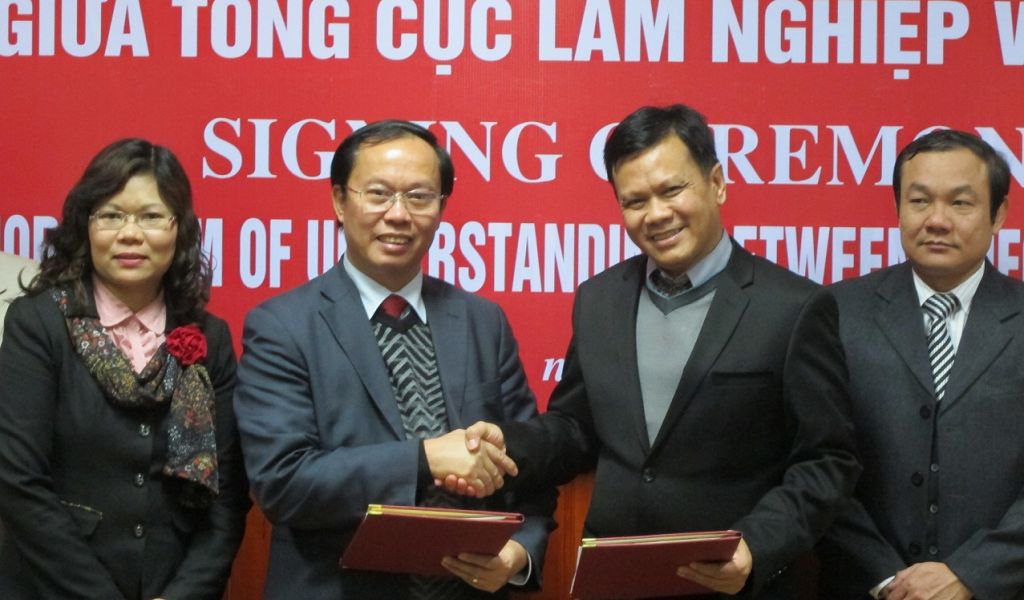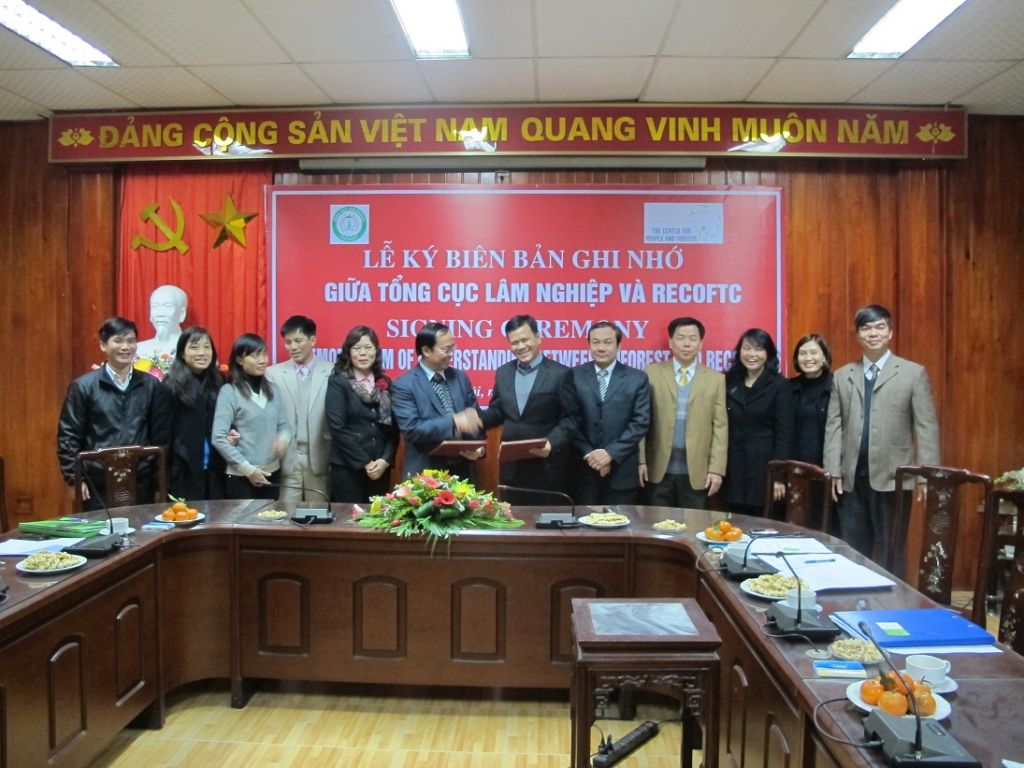RECOFTC and Vietnam Administration of Forestry sign MOU

How can governments and international organizations work together to reduce poverty and combat deforestation? Collaborative efforts based on mutually beneficial goals sometimes fail to live up to expectations for a variety of reasons. However, the shared history that develops between long standing partners can offer a good basis for more ambitious collaborations.
RECOFTC – The Center for People and Forests has worked with the Viet Nam Administration of Forestry since it supported the Center’s founding in 1987. The Vietnamese Government is also a signatory to the charter that made RECOFTC an international organization in 1998. In 2006, the two parties entered into a Memorandum of Understanding to expand their collaboration on community forestry in Vietnam undertaking a range of governance and climate-related initiatives at the grassroots level. These were backed by policy recommendations based on solid analytical studies and a capacity building needs assessment for Community Forestry
This week, RECOFTC and the Viet Nam Administration of Forestry renewed their MOU to continue to work together to support the expansion of community forestry in Vietnam over the next three years.
The MOU was signed by Prof. Dr. Nguyen Ba Ngai, Deputy Director General of the Viet Nam Administration of Forestry in the Ministry of Agriculture and Rural Development and Dr. Tint L. Thaung, Executive Director, RECOFTC – The Center for People and Forests.
In his opening remarks, Dr. Thaung pledged: “We at RECOFTC are committed to supporting the Vietnamese Government’s aim of reducing poverty in poor, forest-dependent communities. In this year, when we will celebrate 25 years of commitment and results in demonstrating that community forestry can provide an answer to some of the most pressing challenges we face, RECOFTC would also like to acknowledge the hard work done by the government of Vietnam in addressing these challenges.”
Dr. Ngai emphasized that RECOFTC has laid the foundation for community and social forestry in Vietnam, noting that RECOFTC was the first organization to provide training in community forestry concepts and facilitation skills to many Vietnamese forestry professionals. He expects the MOU will lay the path for further building of capacity in the forestry sector at all levels.
The MOU, valid until 2015, will set the framework for collaboration in policy work, research and analysis, capacity building and information sharing at local and national levels as well as the piloting of new initiatives in community forestry, climate change, livelihood development and other aspects of forest governance.


